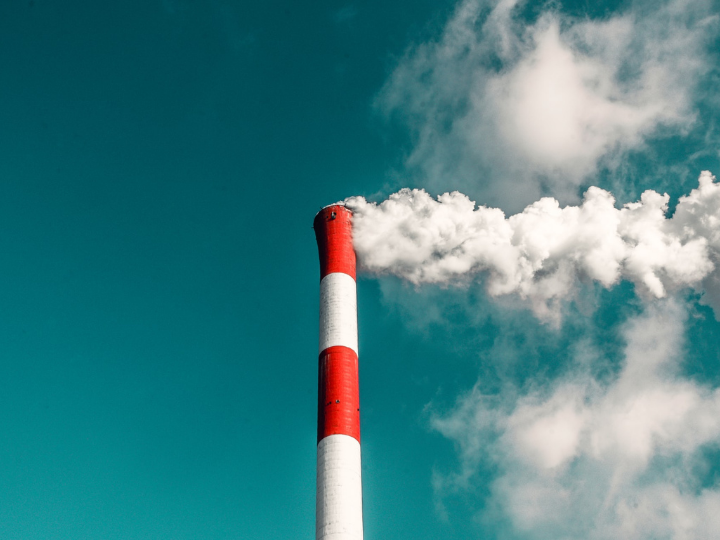by Frederic Simon
The European Commission tabled a root-and-branch review of the EU’s energy and climate laws on Wednesday (14 July), aiming to cut carbon emissions by 55% before the end of the decade and initiate a decisive break away from fossil fuels.
At the centre of the reform is a review of the bloc’s carbon market, the emissions trading scheme (EU ETS), which puts a price on each tonne of CO2 emitted by around 10,000 installations in the power sector, the manufacturing industry, as well as intra-EU flights.
As part of a broad package of climate policies, the Commission also proposed raising the share of renewable energy to 40% of the EU’s final consumption by 2030, up from roughly 20% in 2019.
Renewed focus is also being placed on transport, with the Commission planning a de facto ban on the production of new petrol and diesel cars by 2035, as well as measures to raise taxes on shipping and aviation fuels.
“We know our current fossil fuel economy has reached its limits,” European Commission President Ursula von der Leyen said as she unveiled the package on Wednesday.
“We know we have to move on to a new model – one that is powered by innovation, that has clean energy and that is moving towards a circular economy,” she said.
Carbon market reform
The current ETS was designed to enable a 40% cut in greenhouse gas emissions by 2030. The European Commission now aims to adjust the cap to the EU’s new target of 55%, and extend the scheme to cover shipping emissions, while setting up a new separate ETS to tackle emissions from transport and heating fuels.
“The Commission is proposing that emissions from the current EU ETS sectors be reduced by 61% by 2030, compared to 2005 levels,” the EU executive said, signalling a drastic increase compared to the previous target of -43%.
The annual reduction target for sectors covered by the ETS will also be steeper, reaching 4.2% on a yearly basis, up from 2.2% currently. And there will also be a one-off reduction in the overall emissions cap by 117 million allowances, the Commission said.
The overall consequences of the reform “will be dramatic,” said Georg Zachmann, a senior fellow at the Bruegel economic think tank in Brussels.
“Most of the cars, planes and heating systems in use in the EU will have to be abolished, significant industries will have to change their century-old production processes and massive amounts of clean energy must be produced.”
Another consequence, Zachmann said, is that “burning fossil fuels will become substantially more expensive in all sectors,” including in heating and transport, where petrol and diesel will come under pressure from rising carbon prices and a potential increase in taxation.
This is causing concern in the European Parliament, where Pascal Canfin, a senior lawmaker and ally of French President Emmanuel Macron, warned against the risk of triggering social unrest similar to France’s 2018 ‘Yellow Vest’ movement.
Carbon border levy
To prevent cheaper, more polluting imports from undercutting European producers, the Commission also proposes introducing an external carbon tariff that will be gradually applied to six sectors: electricity, iron and steel, aluminum, fertilisers, and cement.
The levy, called carbon border adjustment mechanism (CBAM), “will align the carbon price on imports with that applicable within the EU,” said the EU’s Economy Commissioner Paolo Gentiloni.
“This will ensure that our climate ambition is not undermined by foreign firms subject to more lax environmental requirements. It will also encourage greener standards outside our borders,” Gentiloni said.
The levy will apply gradually to the six industrial sectors concerned, which already benefit from free allocations under the ETS. Those will be phased out completely by 2036, leaving these sectors time to adjust.
“Of course, this transition could be painful for energy intensive industries, which is why the Commission is now introducing a CBAM,” said Haege Fjellheim, director of carbon research at Refinitiv, a data analytics firm which focuses on carbon markets around the world.
“And the way European industry stays competitive during the green transition will be one of the key battles in the coming years,” she told EURACTIV.
A reporting system will apply from 2023 for those products with the objective of facilitating a smooth rollout and facilitating dialogue with third countries, and importers will start paying a financial adjustment in 2026, the Commission said.
Parts of the revenues could be used to contribute to the EU budget, but no definitive decision has been made yet.
*first published in: www.euractiv.com




 By: N. Peter Kramer
By: N. Peter Kramer
